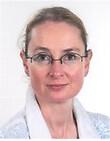Nora Müller, Körber-Stiftung and contributing author to the publication FeMALE moderated this conversation between Elisabeth Motschmann, Member of the German Bundestag, Ambassador Adela Raz, Islamic Republic of Afghanistan, Teuta Sahatqija, Deputy Minister of Foreign Affairs and Diaspora, Republic of Kosovo, and Ambassador Günter Sautter, Deputy Permanent Representative of Germany to the UN, Vice-President of the Executive Board of UN Women. All speakers agreed: We have to safeguard our achievements and at the same time do more for gender equality!
It is now not news anymore that peace treaties which included women in the negotiations are more sustainable. In the short term, peace processes that included women as witnesses, signatories, mediators, and/or negotiators demonstrated a 20 percent increase in the probability of a peace agreement lasting at least two years and this percentage continues to increase over time[i] In the Afghan peace process negotiations in Doha, only 4 women are part of the Republic’s team and there are no women in the Taliban negotiation team. This just highlights that even in high-profile negotiations with international attention, states and international organizations are missing out on their skills and potential.
Ambassador Sautter and Honorable Motschmann, MP, agreed that Germany does better than some other countries, but is still far away from where it should be. Both emphasized that to have a credible position on women’s rights and gender parity on the international level, work needs to be done in Germany. Ambassador Sautter explained that the German Permanent Mission to the United Nations in New York is working hard on doing their part. During its time as a non-permanent member of the Security Council, Germany managed to get resolution 2467 on Sexual Violence in Conflict passed. Germany continuously works in the framework of UNWOMEN, to whose bureau Ambassador Sautter has been elected in January 2021, as well as throughout the negotiations of the CSW sessions’ outcome documents. In the context of the latter, Ambassador Sautter noted that in the last few years an ‘anti-gender-campaign’ is noticeable and he called in the same breath for the need of a ‘gender-parity-surge’ in the UN.
This is a topic which United Nations Secretary General António Guterres has taken very seriously during his first term. Not only are the UN’s Deputy Secretary General and Chef de Cabinet female, he and his team are working on gender parity throughout the UN system. Their effort can be monitored and tracked on this portal. As commendable as his efforts are, during this time, as his first term is coming to an end and he is standing for re-election, voices are being heard, criticizing the UN for never having had a female Secretary General.
Strong female leaders, however, can also be used to stifle gender parity as Honorable Motschmann has pointed out with the example of Angela Merkel. In this case, politicians and journalists advanced the idea that gender equality already exists as there is a strong female leader, hence, women have assumingly achieved what they want. This, obviously, ignores the levels below the Head of Government where gender parity is far from achieved.
Talking very candidly about the situation in Afghanistan, Ambassador Raz reminded us that representation on all levels and in all parts of society is important and that different countries have achieved different levels of female representation and inclusion. Women in Afghanistan represent 12% in foreign service, 30% in civil service and 50% in politics on local levels, and 28% in the upper and lower house. Although this remains far away from gender parity, it is, however, still a vast improvement from the 0% under the Taliban regime.
Throughout the event, all three female participants voiced strong support for gender quotas in political parties. Honorable Motschmann and Minister Sahatqija stated that at the beginning of their career they did not see the need for quotas. However, over the years they realized that regarding gender parity, nothing – or too little – is done on a voluntary basis. Considering that only 18% of German Ambassadors are women, maybe it would be useful to have a quota too?
Moving beyond the national level, the panelists discussed how also the EU could make its foreign policy more gender-sensitive. One way of doing so, could be through its new funding tool for development and stabilization projects, which has a quota stipulating that 85% of programs need to be gender-sensitive.
The issue of gender equality is, however, much broader, which is highlighted by the plethora of events and topics during the yearly CSW and by its inclusion in the Agenda 2030 under SDG 5, which all 193 UN member states have agreed to. So, full gender equality in 9 years?
[i] MARIE O’REILLY, Reimagining Peacemaking: Women’s Roles in Peace Processes, IPI (https://www.ipinst.org/wp-content/uploads/2015/06/IPI-E-pub-Reimagining-Peacemaking.pdf)




